Episode 327: Food Justice and Brian Sellers Peterson, author of Harvesting Abundance
December 13th, 2017
Podcast: Play in new window | Download
Subscribe: Apple Podcasts | Podcast Index | RSS | More
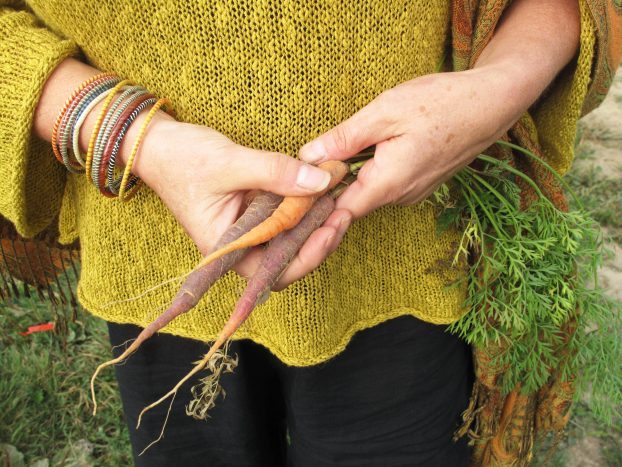 As more people ask “where is my food grown” and increasingly “where are my flowers grown?” issues of access to available land where food and flowers can be produced are increasingly important — especially in urban areas.
As more people ask “where is my food grown” and increasingly “where are my flowers grown?” issues of access to available land where food and flowers can be produced are increasingly important — especially in urban areas.
My guest today, Brian Sellers-Petersen, is working at the heart of food justice and turning underused land into productive, inclusive mini-farms.
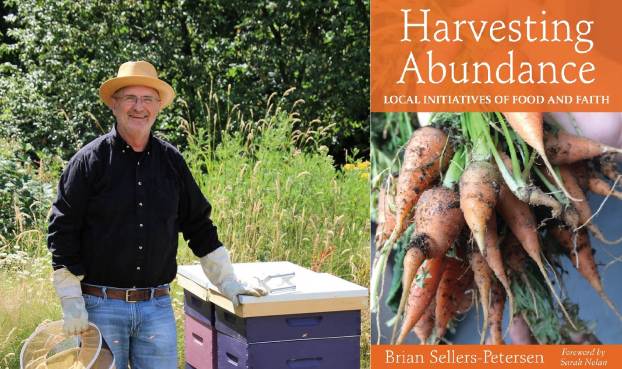 An avid gardener, beekeeper and chicken rancher, Brian is author of a new book, Harvesting Abundance: Local Initiatives of Food and Faith, which tells the stories of mostly Episcopal congregations around the country that are stewarding their land in new ways, sharing produce that’s grown on parcels once carpeted by green lawns.
An avid gardener, beekeeper and chicken rancher, Brian is author of a new book, Harvesting Abundance: Local Initiatives of Food and Faith, which tells the stories of mostly Episcopal congregations around the country that are stewarding their land in new ways, sharing produce that’s grown on parcels once carpeted by green lawns.
He has recently started consulting after 16 years with Episcopal Relief & Development and he holds the unique title of Cathedral Apiarist or beekeeper at St. Mark’s Cathedral in Seattle.
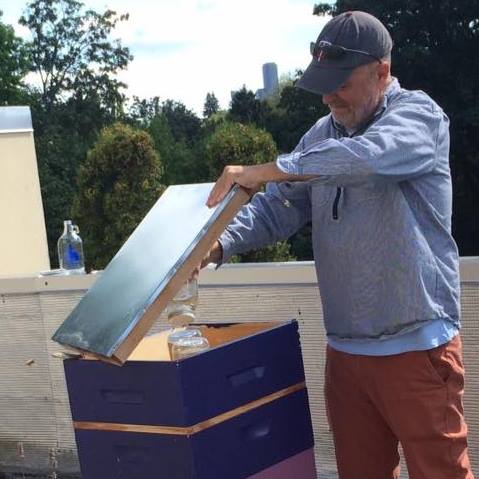
Against the urban backdrop of downtown Seattle, Brian Sellers-Petersen tends to rooftop hives at St. Mark’s Cathedral
He writes:
“One reason to have a garden on the church’s front lawn or most visible site is that it will receive lots of foot traffic. You might not initially get many fans from those who are used to lovely ornamental landscaping, but with some care and thought, you can win them over with a carefully designed array of purple basil, rainbow chard, intercropped flowers, fruit, trees and fill in the blank. . . . It’s going to communicate to members, neighbors, and visitors your values and how people of faith are committed to gathering together around a table to eat.”
Brian maintains that everything you really need to know about the Creator you can learn in a garden.” I love that sentiment and the meaning behind it.
We go back two decades to when we worked together at a large Christian NGO, and I’ve always found myself encouraged by Brian’s progressive ideas and by the way he walks the talk in his own life.

A gathering of participants in Seattle’s Food & Faith Network, photographed at Redmond-based Muslim Association of Puget Sound (MAPS) / Masjid al-Rahmah
He’s been involved in Seattle’s Food & Faith Network, bringing together congregations of many faiths to learn how to start community and teaching gardens and other agricultural projects to grow healthy local food and flowers, build community, care for the earth and bring justice to neighbors and people they serve.
Find Brian at his blog, “Faithful Tilth”
 Thanks so much for joining us today! The Slow Flowers Podcast has been downloaded more than 262,000 times by listeners like you. Thank you to each one of you for downloading, listening, commenting and sharing. It means so much.
Thanks so much for joining us today! The Slow Flowers Podcast has been downloaded more than 262,000 times by listeners like you. Thank you to each one of you for downloading, listening, commenting and sharing. It means so much.
I have a special treat in store for you next week, with our third annual Slow Flowers Holiday Music Special.
You’ll meet my guests, Scott & Kris Prinzing, yes, my brother and sister-in-law, musicians, educators, environmental activists and an uber creative duo behind EarthShine.
You’ll hear their story as passionate creatives and they will share five original songs that relate to gardens, seasons and the environment. It gave me great pleasure to invite them to appear on the Slow Flowers Podcast and I’m eager to share their story and songs with you.
If you value the content you receive each week, I invite you to show your thanks and support the Slow Flowers Podcast with a donation — the button can be found on our home page in the right column. Your contributions will help make it possible to transcribe future episodes of the Podcast.
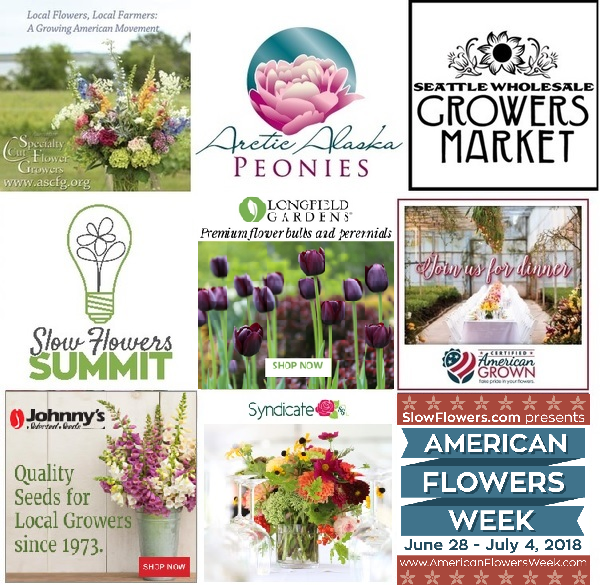 Thank you to family of sponsors:
Thank you to family of sponsors:
And thank you to our lead sponsor for 2017: Certified American Grown Flowers. The Certified American-Grown program and label provide a guarantee for designers and consumers on the source of their flowers. Take pride in your flowers and buy with confidence, ask for Certified American Grown Flowers. To learn more visit americangrownflowers.org.
Arctic Alaska Peonies, a cooperative of 50 family farms in the heart of Alaska providing high quality, American Grown peony flowers during the months of July and August. Visit them today at arcticalaskapeonies.com
Seattle Wholesale Growers Market, a farmer-owned cooperative committed to providing the very best the Pacific Northwest has to offer in cut flowers, foliage and plants. The Growers Market’s mission is to foster a vibrant marketplace that sustains local flower farms and provides top-quality products and service to the local floral industry. Find them at seattlewholesalegrowersmarket.com
Longfield Gardens provides home gardeners with high quality flower bulbs and perennials. Their online store offers plants for every region and every season, from tulips and daffodils to dahlias, caladiums and amaryllis. Visit them at longfield-gardens.com.
Syndicate Sales, an American manufacturer of vases and accessories for the professional florist. Look for the American Flag Icon to find Syndicate’s USA-made products and join the Syndicate Stars loyalty program at syndicatesales.com.
Johnny’s Selected Seeds, an employee-owned company that provides our industry the best flower, herb and vegetable seeds — supplied to farms large and small and even backyard cutting gardens like mine. Check them out at johnnysseeds.com.
Association of Specialty Cut Flower Growers. Formed in 1988, ASCFG was created to educate, unite, and support commercial cut flower growers. It mission is to help growers produce high-quality floral material, and to foster and promote the local availability of that product. Learn more at ascfg.org.
I’m Debra Prinzing, host and producer of the Slow Flowers Podcast. Next week, you’re invited to join me in putting more American grown flowers on the table, one vase at a time. And If you like what you hear, please consider logging onto Itunes and posting a listener review.
The content and opinions expressed here are either mine alone or those of my guests alone, independent of any podcast sponsor or other person, company or organization.
The Slow Flowers Podcast is engineered and edited by Andrew Brenlan. Learn more about his work at KineticTreeFitness.com.









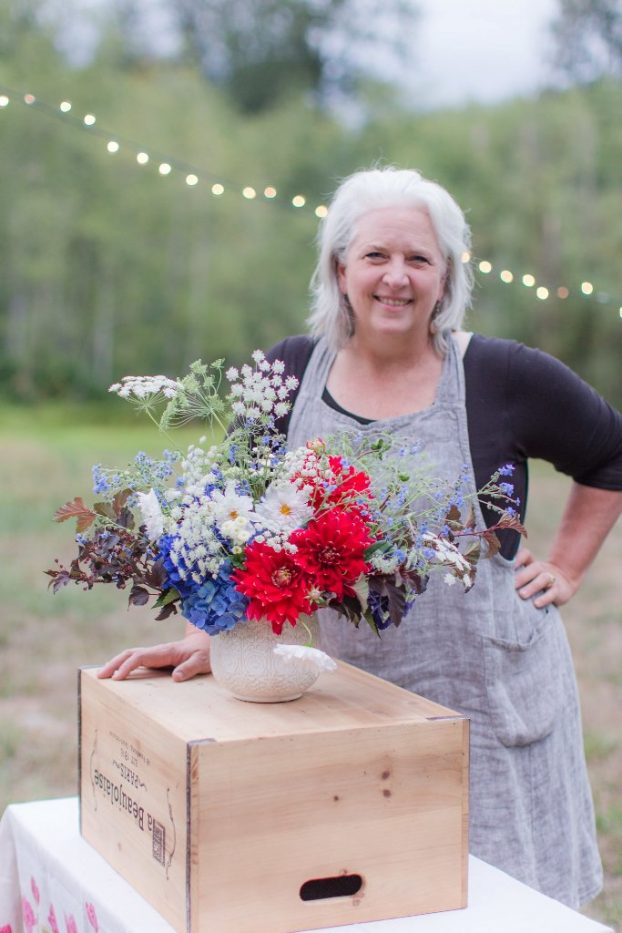
December 13th, 2017 at 12:06 pm
[…] Sellers-Petersen, is working at the heart of food justice and turning underused land into […]Episode 327: Food Justice and Brian Sellers Peterson, author of Harvesting Abundance this post has been replublished from the original […]